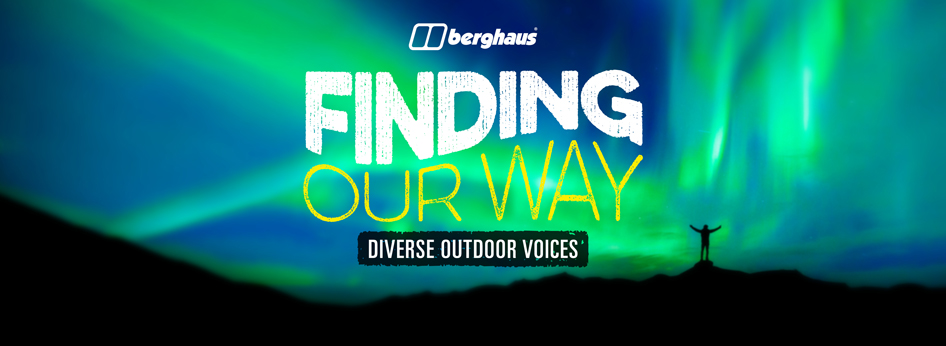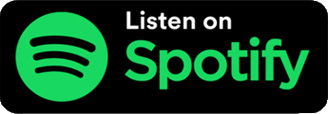Marie Uri and Yasmin Lazarus are climbers and two of the directors of United We Climb, an organization that champions underrepresented and underserved climbers by creating experiences and events that are accessible and inclusive, as well as working with businesses like climbing walls to help the industry identify and break down barriers and become more welcoming.
The Finding Our Way Podcast champions diverse outdoor voices and is proudly sponsored by Berghaus.
.jpg)
Yasmin is a paraclimber, meaning she has disabilities and chronic illness. Marie is a plus-size black woman. Their experiences are different, but they’ve both found themselves in the minority when climbing. From inaccessible venues to unwelcome ‘advice’, they realized the need for not only building supportive communities, but also helping groups and organisations work out how to be more JEDI – promoting justice, equity, diversity and inclusion.
A Quick Chat with Marie and Yasmin...
The phrase, 'the crag doesn't see colour'. What’s wrong with that?
Marie: It’s simple and complex at the same time. When I started climbing, I didn't think about the way I looked or who I was. I just wanted to climb. But a couple of years later, a friend said, ‘Oh, I'm really glad you stuck to it, because there's not many people like you doing it.’ She meant my size, and that I was the only black woman in my climbing club. My friends, I love them to bits. They don’t care – they care if I’m good at belaying or if we’re going to have a good time together. And also London clubs are a bit more diverse than in other places. But I’d go on a climbing trip outside of London and there would be more stares, and micro aggressions - condescending little comments like, ‘Well done, you went up there!' or 'oh, my God, you climb?' Uh... yes. I'm in full kit...
Yasmin: Yeah, I receive a lot of that too. When you’re a beginner, you actually want help. But now I'm eight years down the line and people assume I'm a beginner because of my size or because of my disability. In fact, I have become more disabled over time and so it’s even more noticeable now. Maybe if I'd have felt the way I do now about that, I wouldn't have felt as welcome.
Marie: You have to pick your battles, we’re all here for a good time and you don’t know how it’s going to go if you bring it up. So you choose your moment carefully. People can get very defensive.
What work are you doing within the climbing industry?
Yasmin: We'd like to empower the industry to have the tools to make climbing a more accessible, more representative, and more equitable place for everyone. A lot of climbing walls do want to do this, they just don't know how or they've got the wrong idea of how to do this. It’s partly because the workforce is so un-diverse, so there aren’t those voices and viewpoints. It means underrepresented groups continue to lack empowerment.
Marie: The issue of getting people into climbing, it doesn't start at the wall. It starts way before that. Accessibility is not just 'give a discount for people to get into climbing.' You have to understand the whole journey of that person to come to their first session. It’s partly financial - £40 for a cheap pair of climbing shoes? Some people don’t have £1.50 to get the bus to get there! But it’s also about knowing you can do it – I’ve met so may black women and girls who say, ‘oh, I didn’t know black women did that’. There are a lot of people that look at a community around them and go, ‘I can't see anyone like me. I feel uncomfortable.’
Yasmin: Affinity groups - like a Queer hiking club or Muslim Climbers’ club – they don’t segregate, they promote that community to feel accepted, to feel safe, to feel belonging. Belonging is a big factor in whether people take something up or not, whether someone continues to do something, and whether someone's mental health is positively affected by doing it. It's a basic human characteristic, an evolutionary response.
If one person feels their affinity group has enabled them to feel safe at a wall and then they go by themselves or just in a pair, that's amazing. We have done a service to the whole community there. It doesn't have to be an either/or situation. It can be both/and.
There’s a lot of talk of ‘privilege’ these days. What is it?
Yasmin: Privilege is not about having it easy or having your whole life handed to you on a plate. Privilege is about those specific experiences that you do or don't have to face because of a characteristic that you do or don't have.
Everyone has hardships. Everyone faces different things in their life. But it's about thinking ‘what in my life do I not have to think about?’ It might be being able to get to a climbing meet easily, where someone else with a disability can’t. They have to pay extra for a taxi, or get different public transport. If you’re the only person of colour at the wall, you might get stared at when you climb. If you’re white, you have the privilege of not being stared at. We need to get past being defensive about these things. You didn’t choose those characteristics about yourself, but it’s still part of your anti-racist journey to do something about it, so that everyone’s experiences are more equitable and welcoming.
USEFUL LINKS FROM THE EPISODE
@unitedweclimb
@UK.paraclimbing.collective
@climbMuz
@marylebonemountaineeringclub
Scope: The Disability Price Tag
Yasmin’s recommendation for understanding ‘privilege’
Becoming Anti-Racist: (and anti-other-discrimation, too)
Meet our guests from Season 1:
Rehna Yaseen: Free kit, ‘BAME’ and inspiring young South Asians
Euan Ryan: Making films, climbing and hidden disabilities
Bonita Norris: Everest, ethics and disordered eating
Rob Mitchell: Cake, maps, and gay, bi- & trans lads outdoors
Cherelle Harding: Urban community, reggae and rolling down hills
Stu Skinner: Deserts, jungles and mental health training
Finding Our Way is sponsored by Berghaus, and hosted by BMC walking ambassador Mary-Ann Ochota. Our editor is Chris Stone. Get involved with the conversation. Share your thoughts on @TeamBMC on Instagram and Twitter with the hashtag #FindingOurWay
.png)

Listen now 🎧
Finding Our Way is the new BMC podcast where our guests are as diverse as the outdoors should be.
Hosted by BMC Hillwalking Ambassador and TV Broadcaster Mary-Ann Ochota and Expedition Leader and equity champion Cress Allwood, the podcasts aims to diversify the people we normally hear talking about the outdoors, celebrate their stories and shine a light on their insights.
Listen and subscribe on your favourite podcast apps:





« Back